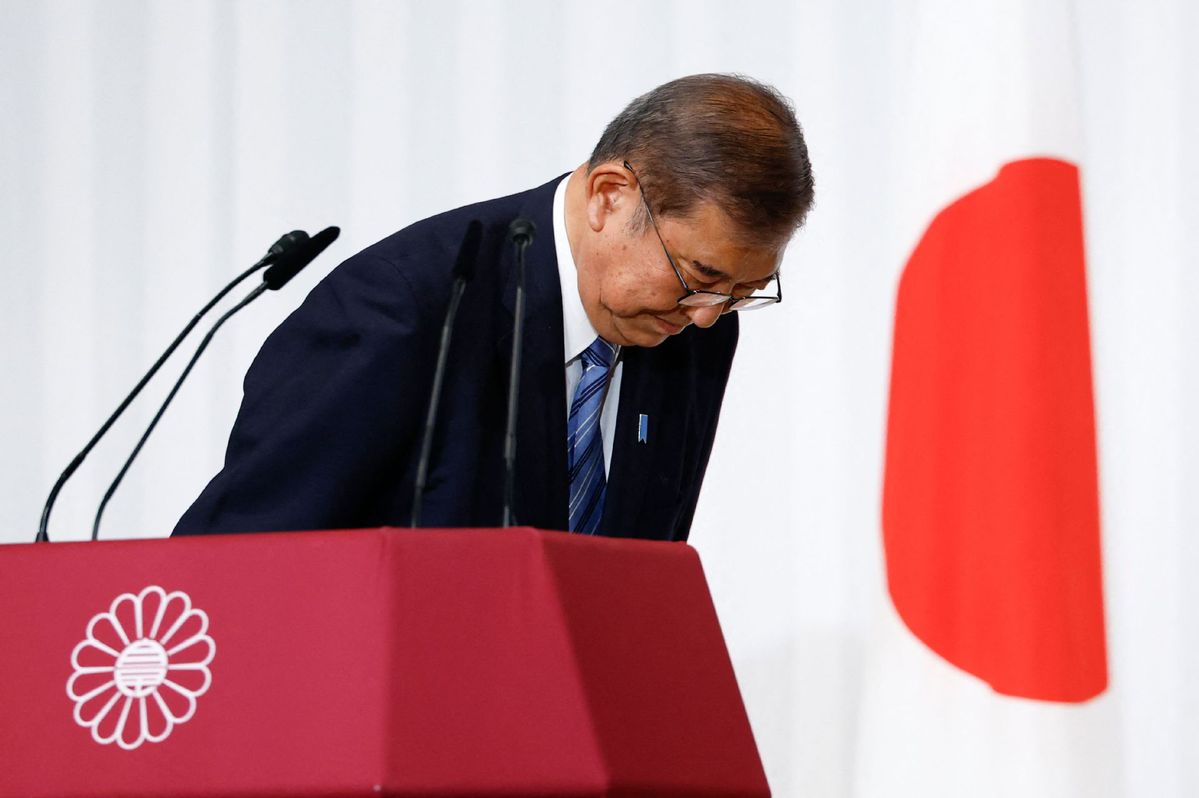Experts voice concerns over Japan's election


The crushing defeat of Japan's ruling coalition in Sunday's general election has captured the attention of experts in international relations, particularly in the United States, which is Japan's closest ally.
The ruling Liberal Democratic Party and its coalition partner, Komeito, lost their majority in the lower house, the more influential chamber of Japan's parliament. Now, Prime Minister and LDP leader Shigeru Ishiba is trying to cling to power through a minority government after the Democratic Party for the People, a key opposition entity, declined to join the coalition on Tuesday, Nikkei Asia said.
Japan finds itself in uncharted political territory. A special parliamentary session is expected to convene on Nov 11 to elect a new prime minister, Kyodo News reported.
The largest opposition party, the Constitutional Democratic Party of Japan, made significant gains in the election and is now projecting its head, Yoshihiko Noda, as a potential leader if the opposition camp can cobble together a majority.
US State Department spokesperson Matthew Miller reaffirmed on Monday during a press briefing that the US' long-standing alliance with Japan will remain steadfast, regardless of the outcome of any election in Japan.
In an article for The Japan Times, Kuni Miyake, president of the Foreign Policy Institute, a private think tank in Tokyo, echoed this sentiment, asserting that there is unlikely to be any substantial shift in Japan's foreign policy despite the political turbulence. As long as an LDP-led administration continues, there is "little chance" of any major changes to the Indo-Pacific policies established by the late Prime Minister Shinzo Abe, he noted.
Even if the CDPJ-led opposition coalition were to take power, "there would be no reason to significantly alter Tokyo's foreign policy", as both the LDP and CDPJ regard the Japan-US alliance as foundational to Japanese security, Miyake said.
Defense alliance
Meanwhile, White House officials met with Japan's experts on Monday to assess the potential implications for US-Japan relations, with a particular focus on timelines for enhanced defense cooperation, according to Nikkei Asia.
Some US experts have voiced concerns that Sunday's election results could hinder Japan's progress on promised defense reforms.
In an interview with Nikkei Asia, Sheila Smith, senior fellow for Asia-Pacific studies at the Council on Foreign Relations, warned of a possible return to Japan's "revolving-door" leadership era. Beginning with Abe's first premiership in 2006, Japan saw six different prime ministers over a span of five years.
Frequent leadership changes make it challenging to maintain the momentum for advancing a cohesive alliance or strategic agenda with partners, Smith noted.
She pointed to the period from 2009 to 2012, when the Democratic Party of Japan was in power. During that time, the US-Japan alliance faced strains as Japan's leaders sought a more "balanced" foreign policy approach, which involved distancing Tokyo from Washington and strengthening ties with Beijing.
However, Chen Yang, visiting research fellow at the Institute of Japan Studies at Liaoning University, suggested that the election results are unlikely to trigger a sudden shift in Japan's strategic direction.
"Adjustments to bilateral defense and security cooperation may be necessary in the future given the opposition camp being in the majority in the lower house," Chen said.
"However, the opposition parties remain divided on key issues such as the US-Japan alliance, US military bases (in Japan) and defense cooperation with the United States," Chen added.
Chen further cautioned that political instability could slow Japan's progress on critical initiatives, including its defense buildup.
The LDP has pledged to increase defense spending to 2 percent of Japan's gross domestic product by 2027, a move in line with US encouragement for Japan to play a larger role in regional security. The party was expected to decide by the year's end on the timing of proposed defense tax increases to fund this expansion.
Japan's traditional left-leaning parties, such as the Japanese Communist Party and the Social Democratic Party, oppose these defense initiatives, contending that increased military investment and a strengthened Japan-US alliance risk destabilizing East Asia.
Although they have only a marginal presence in parliament, Japan's left-leaning parties have historically played a significant role in tempering the country's foreign policy.
Also, Ishiba himself advocates revisiting the Japan-US Security Treaty and the Japan-US Status of Forces Agreement, aiming to address what he perceives as an imbalance in the alliance. His vision for a more equitable partnership includes potentially stationing members of Japan's Self-Defense Forces at US bases and comanaging US military installations in Japan.
Lian Degui, director of Center for Japanese Studies at Shanghai International Studies University, noted that "the idea of revising the Status of Forces Agreement has long been a delicate issue, as it could potentially eliminate the privileges currently afforded to US service members and their families, subjecting them to Japan's domestic laws".
Japanese officials, too, are reportedly cautious about the proposal. "Some have expressed concerns that pushing the revision too aggressively could strain Tokyo's relationship with Washington," Lian added.
































